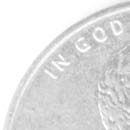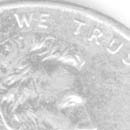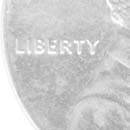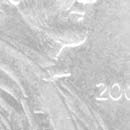I.O.U.S.A. (52 page)
Authors: Addison Wiggin,Kate Incontrera,Dorianne Perrucci
Tags: #Forecasting, #Finance, #Public Finance, #Economic forecasting - United States, #General, #United States, #Personal Finance, #Economic Conditions, #Economic forecasting, #Finance - United States - History, #Debt, #Debt - United States - History, #Business & Economics, #History
Q:
Let ’ s just say hypothetically China divested — imagine a worst -
case scenario where they said, “ We ’ re only buying euros and
other currencies and we ’ re moving away from U.S. Treasuries. ”
Explain to me what that scenario would mean to an average
American who has a mortgage and has a job. What ’ s the
domino effect of China changing its investing strategy?
James Areddy: The fi nancial markets that we cover get very nervous about any kind of change in China ’ s policy, and they have a very diffi cult time fi guring out what the policy is going forward. Probably the scariest thing for them right now would be if China were to stop buying Treasury bonds. It doesn ’ t seem very likely, it seems an almost impossible situation that they ’ d suddenly stop. But if they were to stop buying U.S. Treasury debt, it would likely hurt the global economy, and it would probably send U.S. interest rates higher, making it much more expensive for people in the U.S. to buy homes, to buy their cars, fi nance their credit card debt, all kinds of things.
But it seems a very unlikely scenario that they would even stop.
Q:
Is it true that what ’ s good for the American economy is good
for the Chinese economy? If so, do you see that in the stories
that you cover?
James Areddy: China and the U.S. are linked economically; there ’ s no doubt about it. They certainly share lots of the same interests, and there ’ s bound to be a little tension between the salesman and the buyer. But at the same time, one wouldn ’ t exist without the other one. I think, increasingly, the relationship between China and the U.S. is growing tighter, at least economically.
c15.indd 202
8/26/08 7:02:40 PM
James
Areddy
203
Q:
The trade defi cit: is that sustainable? Can that go on forever or
at some point do you have to balance this sort of thing out?
James Areddy: One of the things that we constantly ask economists is, can the trade defi cit in the U.S. be sustained? Can China continue to go on selling much more to the rest of the world than it buys? And can the U. S. continue to absorb so much more from China than it ’ s exporting to China? There are economists lined up 10 deep on either side of that situation. There really isn ’ t any simple answer. I don ’ t have an answer, and we continue to ask the question because there doesn ’ t seem to be any consensus about whether the trade defi cit in the U.S. with China is a good thing or a bad thing, a sustainable thing, a dangerous thing. No one really knows.
Q:
Is it true that the
Wall Street Journal
has offi ces all over the
world, and, if so, how important would you say this story is?
Do you feel like you ’ re covering an important story for your
news organization?
James Areddy: The
Wall Street Journal
has more staff outside the United States than any other major newspaper, and China is a very big story for the paper. We see it in our reader comments; we see it from every aspect.
Q:
There ’ s world news and then there ’ s fi nancial news. In the
fi nancial news world, there are big stories out there, but in
the fi nancial world, this has to be one of the most important
stories. Can you comment on that?
James Areddy: China is a major global story. It ’ s an economic story and it ’ s a political story, and the
Wall Street Journal
has one of its biggest bureaus worldwide here in China. We have more people outside of the United States than any other major newspaper, and for us, China is one of the most important stories. It goes right to the heartland of America, to Wall Street, to Washington. It touches literally everything, and it is not going to go away as a big story. Whether China goes right, whether China goes wrong — it ’ s going to be a big story for Americans, for business, and for politics worldwide, and that ’ s what we ’ re doing here.
c15.indd 203
8/26/08 7:02:41 PM
204 The
Interviews
Q:
The Chinese empire has been around almost forever, it seems.
What did it do in 1994? In 1994, the Chinese empire seemed
to have turned on a switch. What did they do that has created
these massive ripples, not just in their country but in the whole
world?
James Areddy: I think a lot of people look at the Chinese growth miracle as someone turning on a switch, when in fact I think it ’ s much more the government stepping away and just allowing people to do what they would naturally do. The Chinese are very enterprising, and it ’ s the government ’ s decision to allow people to do what they want, to go where they want, and to basically have a lot of freedom to make various economic decisions. Anything that they want to do with money, they basically can do it. That ’ s what the big change is. It ’ s not someone switching on a light here in China; it ’ s really the government stepping away and allowing people to do what they want with their money.
c15.indd 204
8/26/08 7:02:41 PM









